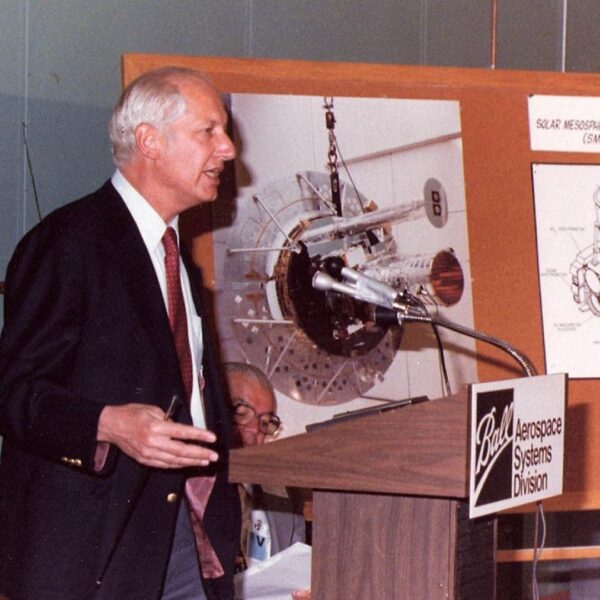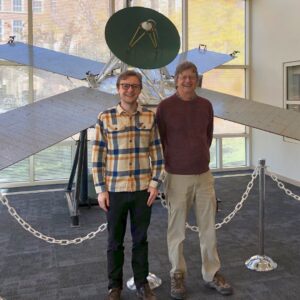Supporting graduate students in space science and engineering
In addition to his long and productive career, Dr. Barth left a lasting legacy through his teaching and mentoring. He generously shared his knowledge and passion with students and was committed to hands-on education and training. Dr. Barth prioritized directly involving as many students as possible in his research.

2022 Award Recipients

Eryn Cangi’s graduate research focuses on the Martian atmosphere. Working with Dr. Michael Chaffin (right), she is developing a comprehensive surface-to-space model of Mars’ atmosphere that includes the chemistry of hydrogen and its isotope deuterium, providing a detailed understanding of multiple modes of atmospheric escape. The results will help researchers better understand the loss of water from the Red Planet.

Kyle Connour works with Dr. Nicholas Schneider (right). He is using ultraviolet data analysis, general circulation models, and other tools to better understand how various aerosols in the Martian atmosphere interact and how they’ve contributed to Mars’ atmospheric loss.
